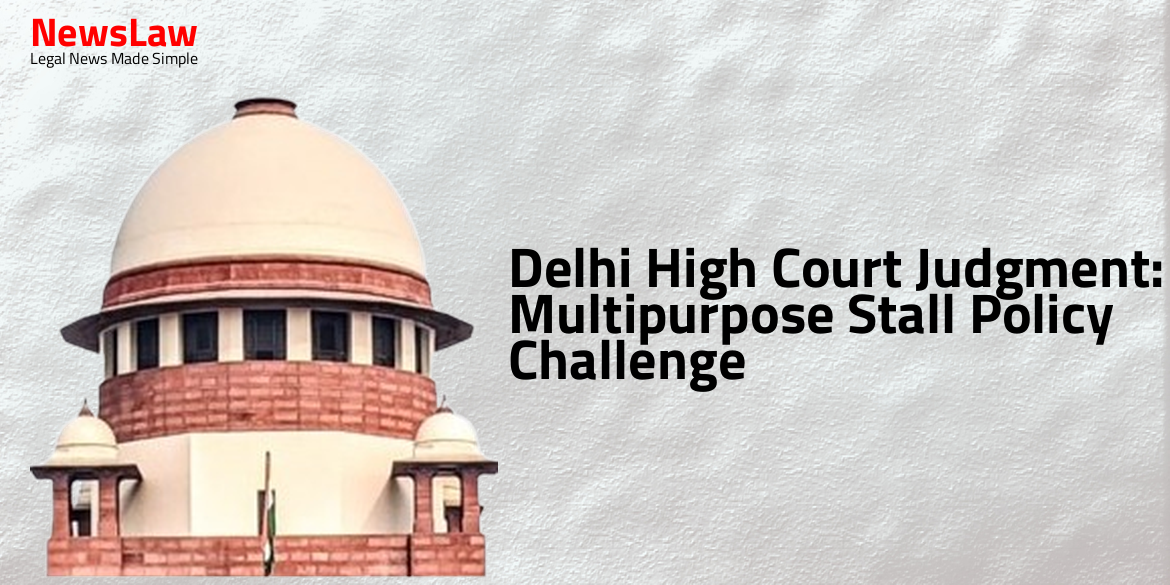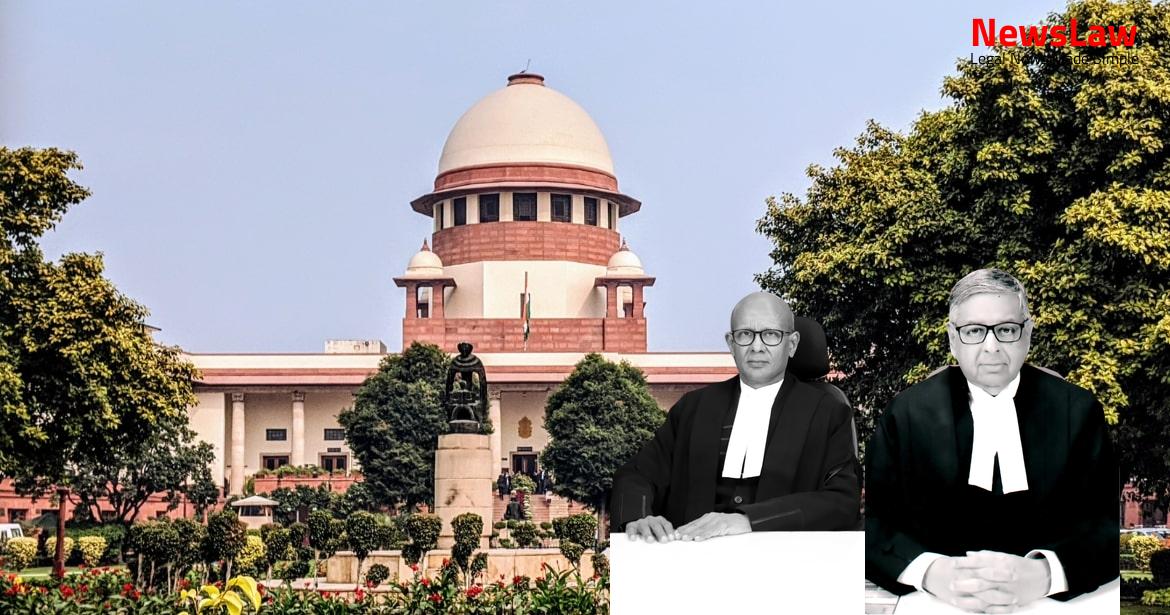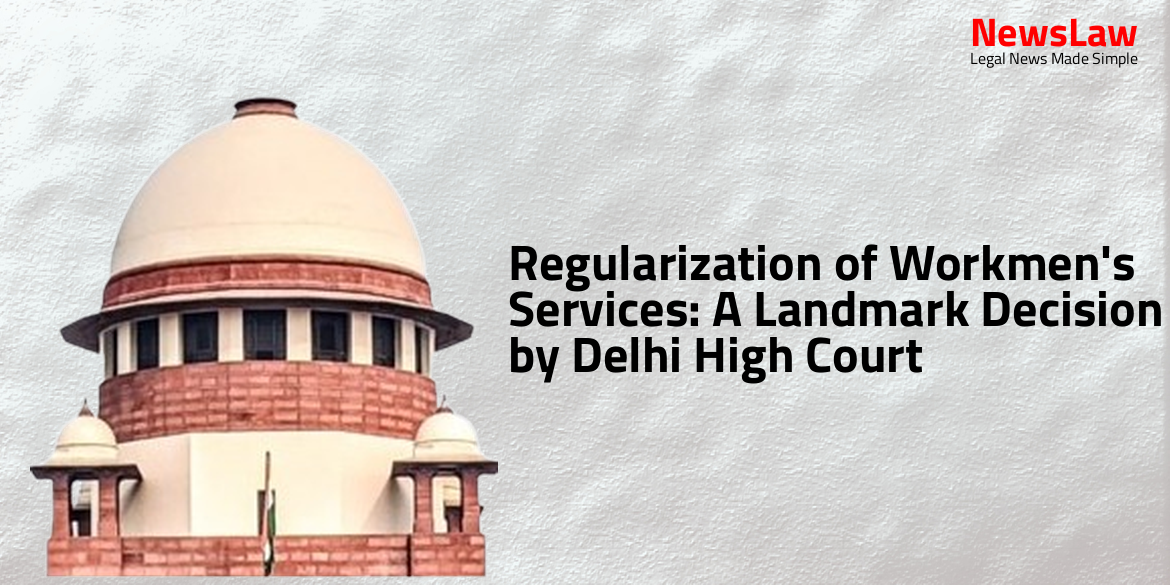In a significant legal development, the Delhi High Court has delivered a judgment on the challenge against the Multipurpose Stall Policy. The case involves a dispute between the petitioners and the railway authorities regarding the renewal and extension of licenses under the policy. Find out more about this crucial decision in the legal landscape.
Facts
- The tenure of licenses for the petitioners was originally until 21.12.2022 but was extended to 27.02.2023 due to Covid-19 lockdown as a force majeure event.
- The Master License Agreements and extension letters have been challenged in W.P.(C) 2501/2023.
- Clause 3 of the agreements explicitly states that there will be no extension or renewal of the agreement.
- The petitioners have opposed Clause 5 and Clause 11 of the 2017 Policy framed by the Railway Board in Delhi.
- Individual petitioners have executed Master License Agreements on specific dates.
- The petitioners were directed to vacate their MPS on 27.02.2023 as per the letters from the authorities.
- Petitioner no.1, no.2, and no.3 operate multiple MPS at different railway stations.
- The petitioners were required to convert their stalls/trolleys into MPS in 2017 as per Commercial Circular No 61 of 2017.
- Various Master License Agreements have been signed between the petitioners and the railway authorities on different dates.
Arguments
- The petitioners argue that the 68-day extension of the contract provided due to Covid-19 is arbitrary, as other units in different railway zones have been granted longer dies non periods.
- They further argue that foot traffic at railway stations significantly declined post-lockdown, leading to a reduction in license fees from June 2020 to March 2022, and seek a proportionate extension of the license period.
- The petitioners claim that Clause 5 of the 2017 Policy violates constitutional articles as it removes the right of license renewal and forces existing licensees to compete with larger companies.
- They seek a writ of mandamus to compel relevant railways to renew and extend their licenses, despite the 2017 Policy’s provision against renewal or extension.
- The petitioners assert that the 2017 Policy is arbitrary and discriminatory, contrary to a Karnataka High Court judgment that upheld the policy.
- They argue that their licenses are governed by the 2017 Policy and stress their legitimate expectation to have their licenses renewed to sustain their businesses.
- The petitioners also claim that their conversion to MPS units was under economic duress, coercion, and unequal bargaining power.
- They argue that the respondents should renew licenses as per the Supreme Court’s judgment in South Central Railways, highlighting the arbitrary distinction in renewing licenses for different types of units.
- The petitioners challenge paragraph 1744 of the Indian Railways Commercial Manual, indicating violations of the Railways Act and constitutional rights.
- They further highlight the benefits the petitioners received under the new policy and argue against being prevented from contesting the policy upon its expiry.
- The petitioner signed a contract for a period of five years which was non-renewable.
- The petitioner enjoyed the benefits of the contract for the entire duration of five years.
- The petitioner cannot now seek to revert back to a policy that is no longer in existence or applicable to them.
- The judgment cited by the petitioner was in relation to Catering Policy, not the Multipurpose Stall Policy under which the petitioner’s contract falls.
- The petitioner cannot claim the benefits of earlier policies after the completion of their contract period.
Analysis
- The 2017 Policy includes a provision for a 33% sub quota for women in allotment of all reserved categories of MPS at all station categories.
- Clause 9 of the 2017 Policy specifically mentions reservation in allotment for marginalized sections of society.
- The appellants do not have an inherent right of renewal under the Easements Act or the 2017 Policy.
- The petitioners voluntarily converted their stalls/trolley to MPS based on letters from the Railway Board.
- There is no jurisdictional hindrance for the court to entertain the petitions challenging Clause 5 and Clause 11 of the 2017 Policy.
- The 2017 Policy safeguards the rights of marginalized minorities and weaker sections of society as emphasized in the South Central Railways case.
- The reservation system in the 2017 Policy ensures equitable access to opportunities for individuals from reserved categories.
- Force Majeure clause has been implemented for all non-operational catering and vending contracts during the lockdown period.
- The petitioners’ claim of legitimate expectation for license renewal lacks merit.
- The 2017 Policy clearly states there will be no extension or renewal of MPS units, but allows existing licensees to bid again if eligible.
- The challenge to Clause 5 and 11 of the 2017 Policy is found to be baseless.
- License extensions due to Covid-19 lockdown were granted based on force majeure events by the Railway Board.
- Zonal Railways have the authority to determine extension periods based on ground realities at respective stations.
- A license is revocable at the will of the grantor and does not confer a permanent right to renewal.
- The petitioners can participate in fresh tenders floated by the railways.
- The extract provided is from point 55 of the judgment.
- The specific part discussed in this extract is labeled as ‘STA.’
- The details or content of the STA section are not provided in the extract.
- It is indicated that point 55 references the content related to the STA section within the judgment.
- Courts have the jurisdiction to declare the law as unconstitutional.
- In a specific case where a challenge was made to the 2017 Policy, the Karnataka High Court rejected the challenge, stating that a breach or threat to breach a fundamental, statutory, or enforceable equitable right is necessary for a writ of Mandamus to be issued.
- Judicial review of a policy decision and issuing a mandamus to frame policy are distinct actions.
- Interpretation of laws by courts involves a creative process.
- A legitimate expectation does not always entitle one to a relief, as public interest, change in policy, conduct of the expectant, or other valid reasons by the decision-maker can negate the ‘legitimate expectation’.
- Public bodies like the respondent Board cannot arbitrarily decline to renew a license and must have rational reasons for their decisions.
- A mandamus cannot be issued to direct the enactment of laws or framing of rules; it is for the enforcement of fundamental rights or statutory rights.
- Policy decisions can be challenged for validity in specific circumstances.
- Individual license agreements and the 2017 Policy include an arbitration clause.
- The arbitration clause can be invoked by the petitioners if they are aggrieved due to the insufficiency of extension because of the Covid-19 situation.
- Petitioners can also claim damages by invoking the arbitration clause.
- Initiating appropriate proceedings through the arbitration clause is a viable option for petitioners to address grievances related to extensions or damages.
Decision
- Existing stalls/trolleys have the option to convert to Multipurpose Stalls (MPS) or continue with existing agreement
- Conversion to MPS grants a tenure of 5 years from the date of conversion
- The conversion process must be completed within 90 days from the date of issue of the policy
- 2017 Policy supersedes previous policies unless specifically referred to
- Petitioners opted to convert their stalls/trolleys to MPS for the advantages offered
- After expiry of current agreement, new MPS space will be allotted by Zonal Railways
- Existing stalls/trolleys can convert to MPS by paying the quoted License Fee
- The tenure for converted stalls into MPS will be 5 years from the date of conversion
- Petitioners in this case are granted a period of 3 months to vacate stalls after the extended license period
Case Title: GOPAL KRISHAN SHARMA Vs. UNION OF INDIA & ORS. (2024:DHC:4452)
Case Number: W.P.(C)-6215/2024



